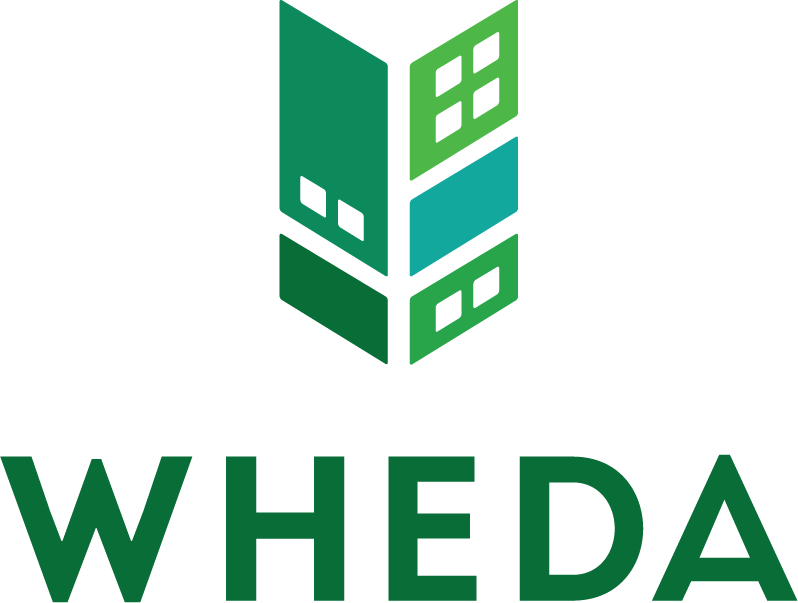WHEDA Seeks Public Comment on Tax Credit Distribution Plan

2021-22 affordable housing tax credits to support economic recovery
MADISON, WI – The Wisconsin Housing and Economic Development Authority is seeking public comment on proposed changes to its tax credit distribution plan, including changes that would increase the positive economic, social and environmental impact of affordable housing projects while improving the competitiveness of rural developments.
The proposed changes would affect scoring for the 2021-22 federal 9% and state 4% tax credit awards and reflect opportunities to further leverage affordable housing to stimulate economic recovery. The stakes are significant – for the current cycle, WHEDA will award approximately $16 million worth of 9% federal tax credits and $8 million worth of 4% state tax credits in the weeks ahead based on last year’s scoring criteria.
Comments on the proposed scoring for the 2021-22 awards are due April 27 and may be submitted via SurveyMonkey or by sending an email to publiccomments@wheda.com.
“As part of our continuing efforts to expand access to affordable housing and economic opportunity, WHEDA has been working with stakeholders to develop proposed changes that make our allocation of federal and state tax credits as effective as possible,” said Matt Childress, commercial lending project manager for WHEDA. “We’ve now compiled these proposed changes into a draft Qualified Allocation Plan and are seeking a final round of public comments before finalizing the plan.”
Among the proposed changes to the federal 9% awards:
- A Wisconsin Green Built Home Standard score of 150 or more will be considered a requirement.
- Projects that achieve a Green Built Home Standard score of 200 or more or that meet the Enterprise Green Communities Certification Plus will be eligible for a new scoring preference of about 7 percentage points.
- Projects with supportive services, including services to meet the needs of veterans, will be eligible for additional points, increasing this category to an overall weight of about 7 percentage points.
- Increased flexibility to provide any combination of units at levels that would be affordable on average for renters earning 60% or less of the county median income and rental subsidy assistance for the targeted units.
- Establishment of a rural set-aside with a separate scoring scale that considers the smaller scale and values associated with affordable housing in rural communities.
- A new scoring preference of about 3 percentage points if the project is in a rural county that has not received a 9% housing tax credit award in the past five years.
- A new scoring preference of about 1 percentage point for applications that include a minority developer acting as a developer or co-developer with at least a 49% stake in all aspects of the development.
Among the proposed changes to the state 4% awards:
- A 25% rural set-aside is being introduced into the State of Wisconsin 4% program and WHEDA is implementing this uniform minimum point scoring threshold for all applications.
- Under current rural set-aside rules, developments must be in an area that meets USDA Rural Development’s property eligibility criteria for multifamily housing. In addition to this requirement, a second requirement will be introduced at the municipality level to require that the municipality be 25 miles or more from a population center and maintain 9,999 or fewer residents.
- WHEDA will publish a list of municipalities that meet the second rural requirement.
- To compete for credits under the supportive housing set-aside, developments must provide supportive services in at least 25% of the units for individuals and/or families who are chronically homeless or prone to homelessness and who require access to supportive services to maintain housing. The developer also must submit commitments for rental subsidies covering at least 25 percent of the units.
Other changes include prohibiting mid-lease rent increases and implementing an annual 2% cap on annual rent increases at WHEDA housing tax credit developments.
WHEDA has been the sole administrator for federal affordable housing tax credits in Wisconsin since the program began in 1986. The state tax credit program was introduced in 2018. The programs do not provide housing subsidies. Rather, tax credits encourage developers to create affordable housing by offering a dollar-for-dollar reduction of income taxes owed by owners/investors in qualified projects for tenants whose incomes are at or below 60% of county median income.
WHEDA awards tax credits to developers who then sell the credits to private investors to obtain funding. Once the housing project is available to tenants, investors can claim the tax credit as a dollar-for-dollar reduction of federal income taxes owed over a 10-year period. The affordable units are reserved for low- and moderate-income households for at least 30 years while other units in the developments may be available at market rates.
Demand for state and federal tax credits is highly competitive and WHEDA scores applications through the Qualified Allocation Plan. A complete list of the proposed changes to the 2021-22 plan may be found here.
The SurveyMonkey comment option offers an overview of the changes while practitioners with specific comments may wish to elaborate via email through publiccomments@WHEDA.com. Comments are due April 27. To keep up-to-date with WHEDA news and information, follow us on Facebook, Twitter and LinkedIn.
About WHEDA
For more than 45 years, WHEDA has worked to provide low-cost financing for housing and small business development in Wisconsin. Since 1972, WHEDA has financed more than 75,000 affordable rental units, helped more than 133,000 families purchase a home and provided more than 29,000 small business and agricultural loan guarantees. WHEDA is a self-supporting public corporation that receives no tax dollars for its operations. For more information on WHEDA programs, visit wheda.com or call 800-334-6873.

